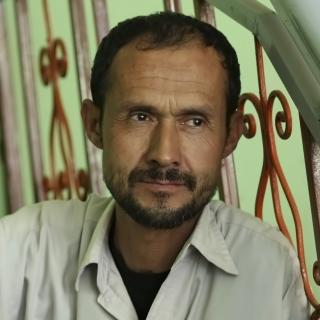En 2017, la situation de sécurité ne cesse de se détériorer en Afghanistan, en raison notamment de l’intensification des combats entre les forces régulières afghanes – soutenues par l’OTAN et les États-Unis – et les différents groupes armés à l’œuvre sur place. Une détérioration encore exacerbée par la nature fragmentée du conflit, due notamment à la prolifération des porteurs d’armes, et par la présence du groupe État islamique. Comme souvent, ce sont les civils qui paient le plus lourd tribut : nombre d’entre eux se retrouvent au mieux privés d’accès aux services essentiels, quand ils ne sont pas déplacés de force, blessés ou tués. Les élections parlementaires, déjà repoussées à plusieurs reprises, sont une fois encore renvoyées à l’année suivante. L’instabilité et la dégradation constante de la situation politique et militaire ont pour effet de restreindre encore l’accès des populations à l’assistance humanitaire.
Tout au long de l’année, les attaques dirigées contre des travailleurs humanitaires et des membres du personnel de santé se multiplient. Sept collaborateurs du CICR seront ainsi tués dans le cadre de deux incidents survenus dans le nord du pays : six, dont Ghulam, meurent en février dans une embuscade. Une septième personne, Lorena Enebral Perez, est abattue dans un centre de réadaptation physique du CICR à Mazar-i-Sharif, en septembre. Ces incidents tragiques conduisent l’institution à suspendre temporairement ses activités, la contraignant finalement à réduire sa présence et à revoir à la baisse ses opérations dans le pays afin d’assurer la sécurité du reste de ses employés. Elle fermera ainsi ses bureaux de Kunduz et de Maymana, dans le nord de l’Afghanistan, et restreindra les activités de sa sous-délégation à Mazar-i-Sharif. Ces ajustements opérationnels auront des répercussions sur la mise en œuvre de bon nombre de projets, notamment dans les domaines de l’assistance économique, de l’approvisionnement en eau et du soutien aux établissements de soins.
En dépit de ces restrictions, des secouristes formés et équipés par le CICR dispenseront des soins vitaux, et un système de transport financé par le CICR permettra d’acheminer plus de 400 blessés graves vers les hôpitaux. Dans le sud du pays, les personnes blessées ou malades seront prises en charge par l’hôpital Mirwais à Kandahar, qui continuera à recevoir un soutien substantiel du CICR, bien que moins important que planifié. Plus de 4000 personnes handicapées bénéficieront également de services de réadaptation physique dans sept centres gérés par le CICR. En outre, des soins de santé primaires continueront à être prodigués dans 47 dispensaires administrés par le Croissant-Rouge afghan et soutenus par le CICR. Sur toute l’année, plus d’un million de consultations seront assurées et quelque 814 000 personnes vaccinées.
Dans les régions auxquelles les conditions de sécurité lui permettront d’accéder, le CICR distribuera des vivres et des articles ménagers de première nécessité aux personnes déplacées, dispensera des formations à l’élevage et apportera un soutien aux moyens de subsistance des familles d’éleveurs. Il s’attachera aussi à améliorer l’accès à l’eau potable, entre autres en réparant des pompes à main. Le Croissant-Rouge afghan, auquel le CICR continuera d’apporter un soutien financier, matériel et technique, ainsi qu’une aide à la formation, restera le principal partenaire de l’institution s’agissant de l’assistance aux personnes les plus vulnérables.
